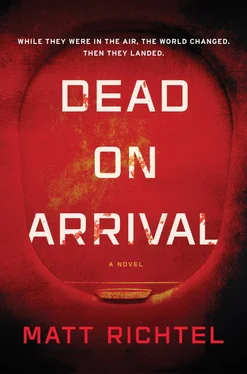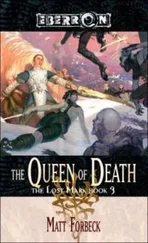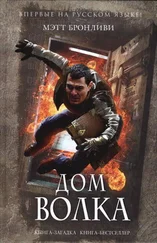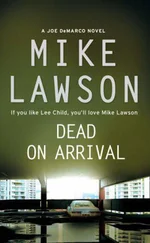“The only hint I’ve had where they might be going with this is that they’ve asked a lot of pointed questions about my first officer. His name is Jerry Weathers, and they’ve—”
“Say it again.”
“What?”
“Jimmy Weathers?”
“Jerry.”
“What’s he look like?”
“Why?” She studied Lyle. “Who cares?”
“I’m having one of those moments.”
She nodded, and described the first officer as lanky, all elbows, full head of brown hair, a bit of buggy eyes. “Bit like a fish,” he said and, just as he said it, she said the same thing.
“You know him?” she said.
“I think he’s been walking around outside.”
Eleanor moved so quickly that she very nearly whirled around. Her elbow hit her water glass, sending the last drops spinning. She turned back to Lyle. “Damn it, are you serious?” She quickly lowered her voice to try to limit what already was too much attention caused by her spill.
“Seems to describe the guy. He’s gone, I think. I don’t see why you’re so—”
“Have you been listening?” She leaned in so close he could smell her soap and the touch of perspiration and tension seeping through. “I don’t know what’s going on and I don’t know if he’s playing me in some way, or what he’s up to.”
Lyle got it now. This first officer might be turning on her, but for the life of Lyle none of that made sense.
“I’ve got to go,” she said.
“Please, wait.”
She shook her head. She looked at the doorway to the right of the counter, the hallway to the bathroom, and a back door. Lyle felt a terrible urge to say I can help you but he didn’t know if it might come off as patronizing when that wasn’t what he meant at all. Most of all, he didn’t know if he was capable of helping her when he couldn’t help himself or even decide if he wanted to. He watched the pilot walk away and felt an immediate sense of loss. It was the very feeling he’d had for years crystallized into a moment—he should be doing something or saying something because life was slipping away—and being unable to do anything about it. There was nothing he could do about it now.
Outside it was fully dark. Lyle absently got on his bike and let a million questions slide around his brain without focusing on any particular one of them. With the sun down, the early evening took on a decided winter chill. He was glad he’d put on this wool sweater. He pedaled along the west side of the park on Scott, figuring he’d go left on Fell. He saw the driverless car.
It crept along behind him in modest residential traffic. At the corner of Oak, a thoroughfare with thickening traffic, Lyle thought about Occam’s razor and the likelihood of the simplest explanation. Maybe there were just a lot of these cars around. He took a right onto Oak, heading east, away from home, just to test the theory. A quarter way down the block, he looked back and saw the driverless car take a right too. Okay, thought Lyle, still nothing certain, given Oak’s popularity. A car horn exploded.
The driver was warning Lyle that, distracted, he’d swerved into the lane. The human driver shouted something Lyle couldn’t hear. Lyle stopped along the edge of the far right lane. The fracas and pace and bouncing headlights of the cars speeding Oak disoriented Lyle. The feeling jostled him, sparked a memory of Steamboat, the cold and dark, that he couldn’t quite grasp. He looked into the fray of oncoming lights and couldn’t see the bubble car now. Had it disappeared?
Then, boom, there it was again, nearly on him, just a car length back. It had been hidden behind larger vehicles. The bubble neared. Fear jolted Lyle and he pedaled again.
Lyle willed himself to take a deep breath. He went right on Steiner. The traffic thinned. Lyle kept a modest pace. He craned over his right shoulder. The bubbly autonomous vehicle turned right on Steiner. So dutiful, it used its blinker and slithered onward, a perfect citizen, an innocuous robot, a guileless storm trooper. Lyle sped up. Then screeched the brakes when a car door opened. He swerved, righted himself, then at Duboce Avenue he went left and made a quick right on Sanchez Street; glancing behind him, he took another right on Fourteenth.
The driverless car went right too. There could be no doubt. This seemed to Lyle to be of zero interest to anybody but Lyle. Either these cars had become so common no one noticed, or everyone was so consumed with their own thing that they’d not have noticed a pink elephant following Lyle. He pedaled until he came to an alley and took a sharp right into it, then stopped. The car followed him. Lyle dismounted his bike.
The car slowed. It looked to Lyle like a bubble with a brain.
The car inched forward, and Lyle stepped in front of it. He scanned the attached houses across the street, a short, stark white one decorated with purple perennials attached to a taller greenish-gray house with exterior metal staircases. Was anyone in the window to bear witness? No such luck. Lyle pulled out his phone. He called up the video function and hit record.
The car had come to a complete stop ten or so feet from Lyle. He couldn’t help imbue it with human characteristics. In this case, Lyle decided that it had made a decision. It wasn’t going to run him over. He walked to the front of the car, his video still recording. Lyle, careful not to move out from the front of the car so that it might have an escape path, peered inside. He nearly laughed when he saw the cup holder. Maybe autonomous vehicles got thirsty. Other than that, the bulb of technology wanted for anything human. Sterile, beige leather seats matched either side of an instrument panel between. A trough stood in place of the dash with more gadgetry beneath it.
Lyle looked up at the black eye on the top.
The car lurched forward.
Lyle lunged out of the way. Off went the car. Just a roll of the wheel at first and then a sincere acceleration.
Lyle looked around. Did anyone see that? Did he see that? The car disappeared down Lloyd, took a right and by the time Lyle hopped on his bike again, it had disappeared. He didn’t stop riding until he’d reached City Hall. He took his bicycle onto the train with him. No car would follow him here. Not that he particularly cared. He was thinking of the Google car the way he’d think of a patient’s medical symptom, not as something to wish away but as a key piece of evidence. What was the car telling him?
Mostly, it was reiterating to him what his note had told him: he wasn’t imagining things. Second, it was telling him that whatever strange situation he’d stumbled into involved a powerful actor, powerful enough to involve a driverless car. How powerful did that make someone?
It did give him two disparate pieces of evidence to connect, and disparate clues were of immense value to Lyle when he’d taken on medical mysteries. The more disparate the better. Someone from central California with a pronounced stiff neck and sound sensitivity could have valley fever. Talk about disparate: here was this driverless car and then there was the note on his refrigerator. The note referred to seizures and channelopathy and Lyle had trouble seeing any Venn diagram with an overlap between these disease states and a Google car.
The note mentioned Google. And now the car. What was someone trying to do?
Draw him in?
Warn him?
Taunt him?
To what end?
Lyle looked through rows of commuters at the map on the wall over the door. He knew where he was headed and hadn’t fully admitted it to himself, or the reasons why. He could see the stop on the map, downtown Berkeley, Shattuck Avenue. He was going to find Melanie. His jaw tightened. The last time he saw her might’ve been eighteen months earlier. She’d stopped by his house with a bag of groceries. “Green things,” she said, “to help your liver process.” It was loving, painful, and patronizing. She’d looked around his house like a detective. “I’m here if you need me,” she’d said and closed the door quietly.
Читать дальше












